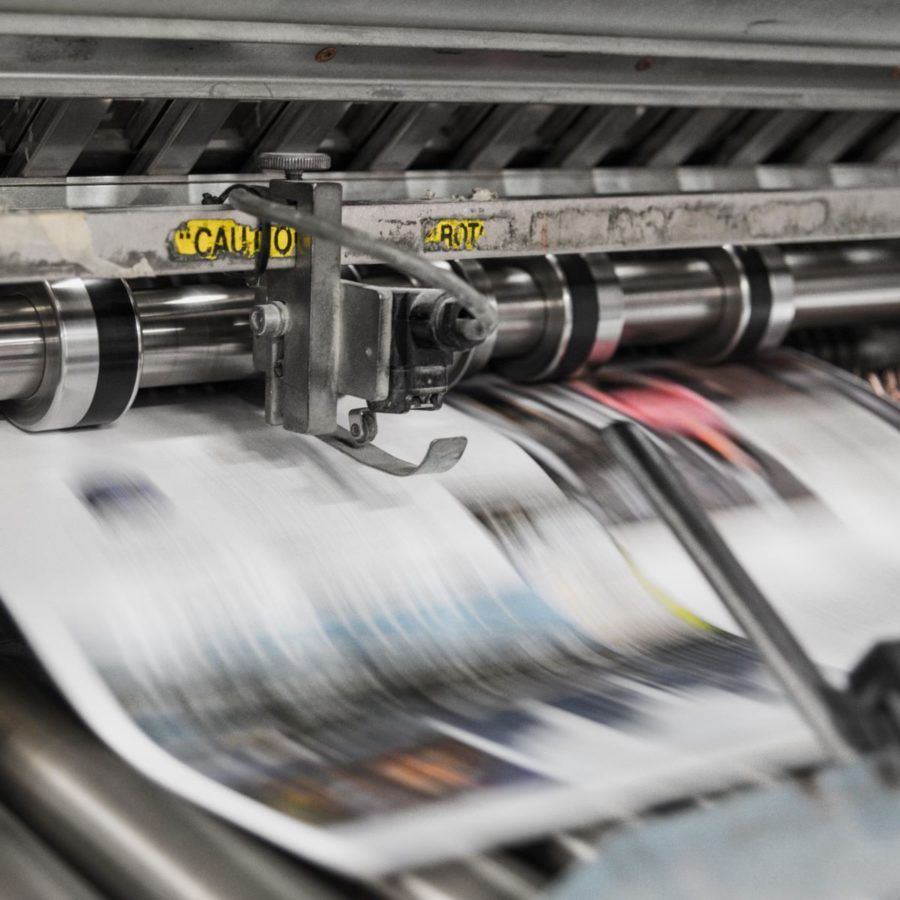READ: 2025 report ‘Who Owns the UK Media?’
Most of the UK’s media is owned by a handful of powerful corporations – and their dominance is only getting stronger. We urgently need government action to break up monopolies and make sure more voices can be heard.
Watch: Who Owns the UK Media?
In 2025, just three companies dominated 90% of the national newspaper market, and today’s digital giants are some of the most powerful corporations the world has ever seen. Learn more about our research on media ownership.
Democracies need vibrant and plural media, where people can hear a range of conflicting views and perspectives. Learn more about why it’s such a problem to have a few billionaire owners controlling the news agenda and the digital technologies we use.
Across the world the largest media companies are constantly condensing their power with little control or intervention and no obligations to act in the public interest. Learn more about the MRC’s policy solutions to break up monopolies, make the media moguls more accountable, and support diverse voices.
Our work on media ownership and control
– Media Influence Matrix
A comprehensive report evaluating the governance, funding and ownership of the UK media. Read report.
– Taking on Murdoch campaign
Learn how we worked with campaign partners to stop Murdoch buying the entirety of Sky in 2017. Read more.
– What does media concentration do to a country?
Event at Media Democracy Festival 2022 on the Australian media system. Watch event.
Media ownership
The UK’s media is dominated by a handful of corporations. What does it mean to have a ‘free’ media when the nation’s social media platforms, TV channels, newspapers, radio stations and streaming services are owned by a handful of giant corporations? Is our media truly independent if many of our most influential news organisations are controlled by individuals and Boards pursuing vested interests? How can we stay informed about pressing issues in our communities when local news sources are being cut, closed down or merged into online outlets with no grounding in the places they report on?
For more than a decade, the Media Reform Coalition has been the only organisation that produces regularly updated, expert research on UK media ownership. Our first report into media plurality, The Elephant in the Room, was published in 2013, and five editions of ‘Who Owns the UK Media’ have been produced in 2015, 2019, 2021, 2023 and 2025. These have all charted the persistently worsening situation of media concentration in the UK.
The key findings from our 2025 report are:
- Seven of the top 15 online platforms used to access news in the UK are owned by Meta, Alphabet and X Corp. Google commands 93% of UK search engine use, while Meta and Google together account for three-fifths of all UK advertising spend, giving these two Big Tech companies unrivalled control over how news is founded, accessed and funded online.
- Just three companies—DMG Media, News UK and Reach—dominate 90% of the national newspaper market, a 20% increase in market concentration since 2024. These same three companies account for more than 40% of the combined audience rearch of the UK’s top 50 ‘newsbrands’, giving these publishers significant power to set and steer the national news agenda.
- The UK’s local newspapers are dominated by a tiny handful of corporate chain publishers, with just two companies – Newsquest and National World – controlling 51% of the UK’s 882 local newspapers and online local news websites. More than eight out of ten Local Democracy Reporters, funded by the TV licence fee to restore local journalism, are contracted to Newsquest, Reach and National World – and these same companies control local newspaper monopolies in areas covering 11.6 million people.
- In commercial radio, just two companies – Bauer and Global – own two-thirds of the UK’s national DAB radio stations, and more than 60% of local analogue stations. Bauer, Global and News Broadcasting (owned by publishers News UK) together control more than three-quarters of the UK’s national DAB radio market.
- Netflix, Amazon Prime and Disney+ account for 75% of all UK video-on-demand subscriptions. Almost half of the value of TV commissions by the UK’s major broadcasters went to just 12 companies, despite these largest producers making up only 4% of the entire UK independent production sector.
Read our media ownership reports.
Why media pluralism matters
To participate in democracy, citizens need to be exposed to a diverse range of voices and perspectives and be kept informed about the actions of the powerful. In liberal democratic theory, the media is supposed to act as a ‘fourth estate’ – sitting alongside government and the courts and playing a crucial role in holding them to account. Although investigating elites and exposing abuses of power is expensive and risky work, media organisations are supposed to be willing to invest in it because they are competing with one another to break stories.
This theory stops working in a media system like we currently have in the UK which is highly concentrated in very few hands. When we don’t have enough plurality, media themselves become major power holders, and their interests are often aligned both with other elites and with one another. This was clearly demonstrated with the hacking scandal – most of our major newspapers knew this was going on at their competitors for years before the Guardian broke the story, but refused to report on it because they were also using the same illegal methods.
Now the traditional media moguls like Rupert Murdoch have been joined by a new set of powerful powerbrokers online. The dominance of the tech giants is a problem in itself, as companies like Google and Meta are able to control a huge proportion of digital space with very little accountability. And rather than amplifying a wider diversity of voices, the evidence is that the tech giants perpetuate the disproportionate power of traditional news brands, and do little to support local, public interest and longform reporting.
This lack of plurality can have particularly acute effects at the local level. Our research in 2021 found that 83% of UK local newspapers were controlled by 6 companies – and this went down to just 5 companies in early 2022 when Newsquest acquired Archant. These companies have spent the last two decades consolidating newsrooms and cutting costs, severely undermining the volume and quality of local journalism. As many have noted, it was partly the lack of any local news titles in Kensington that meant that local housing campaigners who were trying to raise the alarm about flammable cladding on Grenfell tower were not listened to. We need a vibrant, varied ecology of local news organisations to pick up and investigate those kinds of public interest stories, and enable people in all communities to participate in democratic life.
Learn more about the why media pluralism matters by watching our event about the most concentrated media system in the world – Australia.
Our policy solutions
The huge concentrations of media power we see today has not happened naturally. It has happened because successive governments and regulators have refused to take action when large companies have enhanced their dominant market positions through mergers and takeovers of smaller rivals.
At the Media Reform Coalition, we believe that tackling this problem and enhancing plurality requires three types of policy solutions:
1. Breaking up private monopolies when they have too much control over a particular market
No single company should be able to dominate the national conversation. In our 2019 Media Manifesto, we advocated that Parliament should establish a set of thresholds based on audience share of the relevant market, as well as cross-market indicators, as a basis for decisions on whether or not to intervene on plurality grounds. These thresholds should be periodically reviewed and consulted on by Ofcom, which should also carry out regular plurality reviews of media markets, not only when a merger is being proposed.
2. Ensuring internal independence and plurality in the largest media organisations
As outlined in our 2015 media plurality bill, MRC believes in the principle that dominant media players should have to accept public interest obligations because of their disproportionate impacts on society. These public interest obligations wouldn’t be as onerous as the kinds of public service regulation at the BBC, but could include having to have governance frameworks that preserve editorial independence from owners, or that require worker representation on boards and support the unions. We also advocate for greater internal plurality within our public broadcasters in our proposals for a People’s BBC and People’s Channel 4.
3. Supporting more diverse voices with new funding and ownership models
Our Manifesto for a People’s Media outlines a number of policies to support independent media. For example, government put should provide support for community buyouts of local commercial newspapers which are under threat of closure or of being acquired by local news monopolies. Independent media organisations should also be supported through creating a network of National and Regional Independent Media Councils using participatory methods of decision-making.




